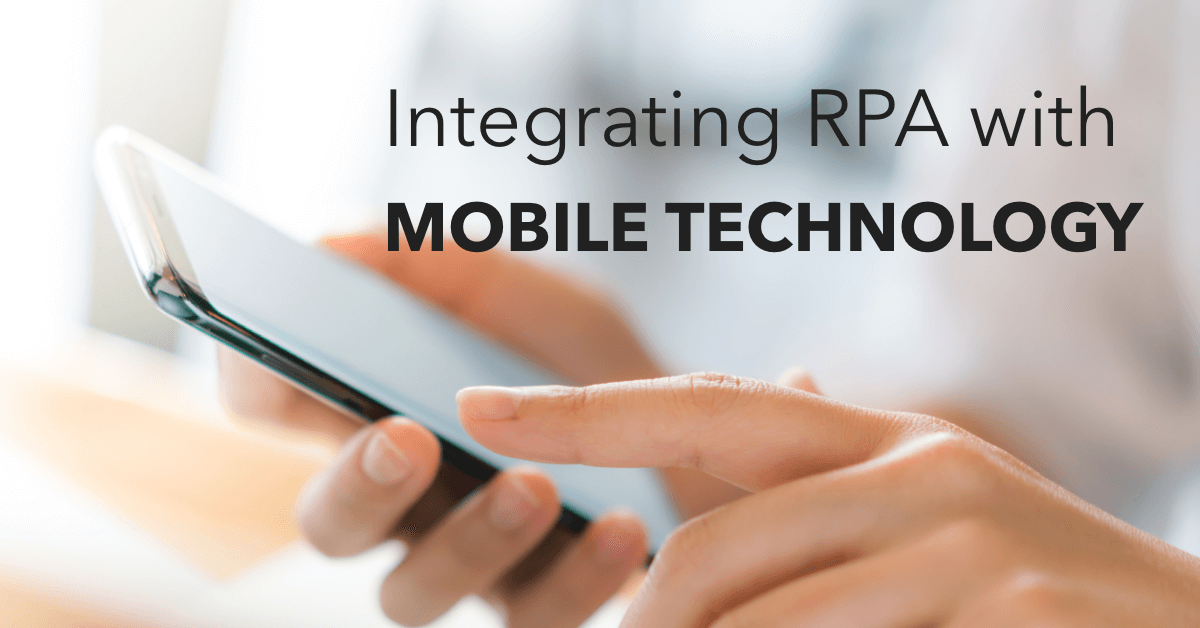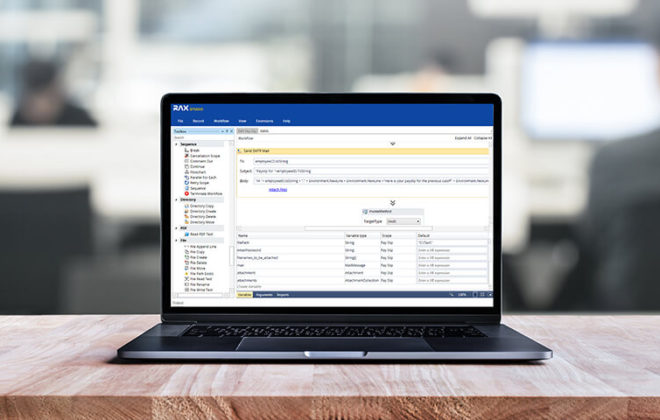Integrating RPA with Mobile Technology
Most people today spend hours on their mobile devices for different purposes – whether it be to communicate with someone, send reports to their bosses, or update their status on social media. Likewise, customers use their mobile phones in various transactions and expect unprecedented quality of service in the current fast-paced economy. In fact, smartphones are predicted to replace desktops and laptops as primary tools at work.
From being just devices with the only function of text messaging, mobile devices have become a necessary part of our daily lives. Businesses in traditional industries have shifted their focus on meeting this demand and staying competitive in this digital economy.
Huge enterprises have streamlined their operations by adopting Robot Process Automation (RPA). With the addition of Artificial Intelligence and other intelligent machinery, RPA tools allow any business to automate even complex end-to-end processes. This evolving technology is only becoming a mainstream in the business sector. And as market researches continuously show a positive forecast on RPA in the following years, many companies follow suit.
For many years, RPA companies only supported the automation of desktop applications. But as the time goes on, they are getting more features and eventually make it possible to bring automation on mobile devices, allowing businesses to provide high-quality and immediate service.
As a leader in simplifying digital transformation through automation, Monstar Lab offers strategically-designed solutions to business users through its RAX Automation Suite. Monstar Lab helps enterprises and small companies to take a smooth transition to digitization and enables them to leverage a combination of RPA and mobile technology.
A use case from Monstar Lab shows how RPA can effectively handle the real time audit of a local oil company through a mobile app. Basically, the customer takes a photo of his meter reading using the mobile app that is equipped with technology called Optical Character Recognition which will turn the photo into an editable text so the customer can confirm if values are correct. It will then be automatically uploaded to the cloud or server, crosschecked by RPA bots, and then sent to the main system for update.
Apart from the mentioned use case in audit, RPA can also be integrated with mobile technology to aid businesses in the retail industry with competitive pricing and monitoring.
Based on a consumer survey conducted by Retail Dive, about 60 percent of shoppers look up product information and compare prices of shopping sites using their mobile phones. Online merchants often use software that automates the time-consuming job of repricing and keeping up with other competitors. RPA can analyze shoppers’ preferences, monitor and alert business users, and proactively reprice according to the provided criteria.
Banks nowadays also benefit from RPA and mobile technology in rapidly automating lengthy and time-consuming processes of creating and closing customer accounts. These processes not only require the manual input of a customer’s information, but also need the manual cancellation of direct debits and standing orders, transfer of interest charges, as well as the transfer of funds from one account to another. To address these challenges, RPA bots can be deployed to the bank’s system wherein customers can complete an electronic form using a mobile application which is sent to a central mailbox where it is processed by the RPA system with no manual intervention.
Today, Robot Process Automation is used across a wide variety of areas as more enterprises continue to explore a broader suite of process automation to help them deliver the most valuable services. And as RPA trends continue to evolve, automations are expected to increasingly become more carefully planned, modelled, and designed to work with humans and beyond computers.





